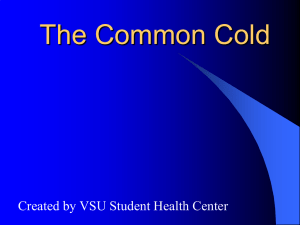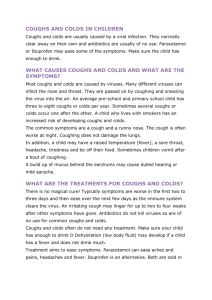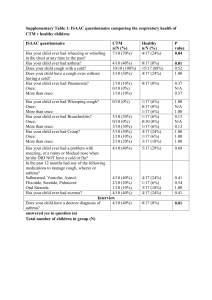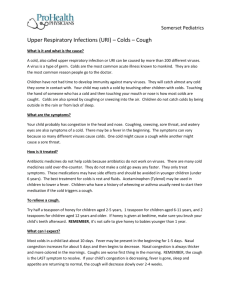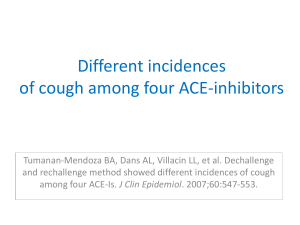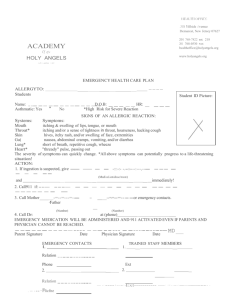Treating coughs and colds - Pharmaceutical Society of Australia
advertisement
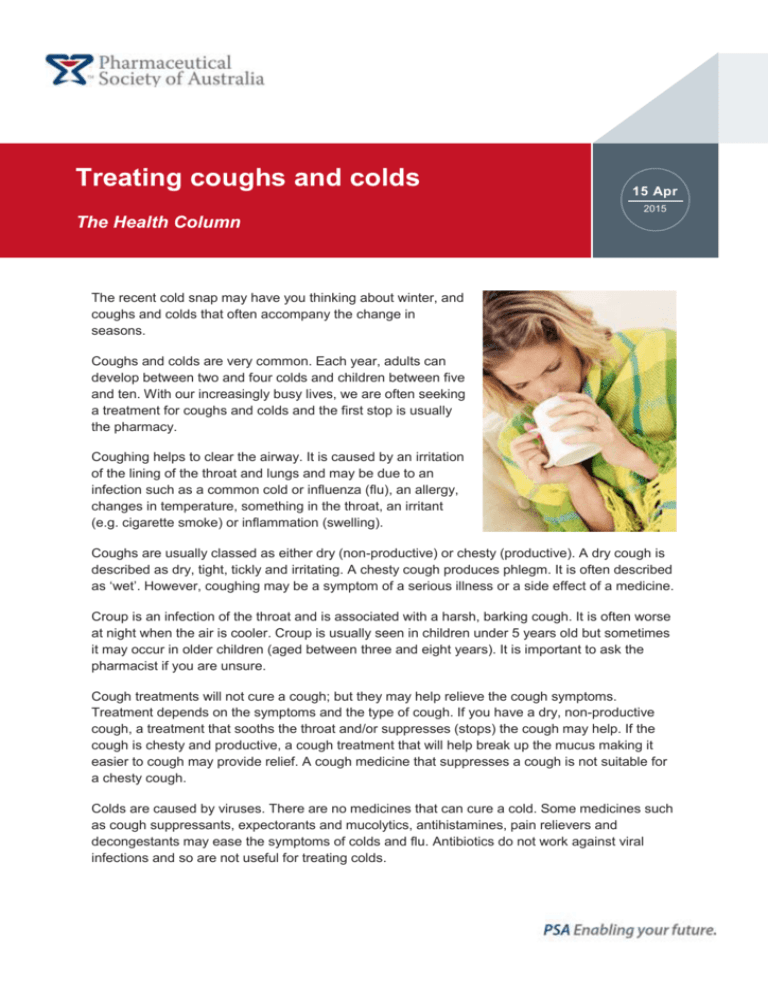
Treating coughs and colds 15 Apr 2015 The Health Column The recent cold snap may have you thinking about winter, and coughs and colds that often accompany the change in seasons. Coughs and colds are very common. Each year, adults can develop between two and four colds and children between five and ten. With our increasingly busy lives, we are often seeking a treatment for coughs and colds and the first stop is usually the pharmacy. Coughing helps to clear the airway. It is caused by an irritation of the lining of the throat and lungs and may be due to an infection such as a common cold or influenza (flu), an allergy, changes in temperature, something in the throat, an irritant (e.g. cigarette smoke) or inflammation (swelling). Coughs are usually classed as either dry (non-productive) or chesty (productive). A dry cough is described as dry, tight, tickly and irritating. A chesty cough produces phlegm. It is often described as ‘wet’. However, coughing may be a symptom of a serious illness or a side effect of a medicine. Croup is an infection of the throat and is associated with a harsh, barking cough. It is often worse at night when the air is cooler. Croup is usually seen in children under 5 years old but sometimes it may occur in older children (aged between three and eight years). It is important to ask the pharmacist if you are unsure. Cough treatments will not cure a cough; but they may help relieve the cough symptoms. Treatment depends on the symptoms and the type of cough. If you have a dry, non-productive cough, a treatment that sooths the throat and/or suppresses (stops) the cough may help. If the cough is chesty and productive, a cough treatment that will help break up the mucus making it easier to cough may provide relief. A cough medicine that suppresses a cough is not suitable for a chesty cough. Colds are caused by viruses. There are no medicines that can cure a cold. Some medicines such as cough suppressants, expectorants and mucolytics, antihistamines, pain relievers and decongestants may ease the symptoms of colds and flu. Antibiotics do not work against viral infections and so are not useful for treating colds. Often it may be difficult to tell the difference between the common cold and influenza (the flu). You may think you have the flu when you have a cold. Although viruses cause both conditions, the flu virus causes symptoms that are usually more severe and often appear suddenly. Always check with your pharmacist if you are unsure. They will provide you with the most appropriate information and know when to refer you for further medical review. To relieve the symptoms of a cold try to rest, drink plenty of water and non-alcoholic fluids, avoid cigarette smoke and use steam inhalations to help relieve a blocked nose (check with a doctor or pharmacist before using with children). To soothe a sore throat and cough, try gargling with warm salty water, anti-inflammatory, anaesthetic or antiseptic gargles (avoid in young children), sucking on an ice cube or a throat lozenge (avoid in young children) and drinking hot water with honey and lemon. Your local pharmacy is your health destination and the pharmacist and pharmacy staff can provide a range of products, medicines, services and advice about the best treatment for your coughs and colds. Visit your local pharmacy next time you have a cough or cold and find out what they have available. You can get more detailed information on coughs and colds from the Self Care Fact Cards titled Coughs and Colds and flu, available from pharmacies providing the Pharmaceutical Society of Australia’s Self Care health information. For the nearest Self Care pharmacy location phone the Pharmaceutical Society of Australia on 1300 369 772, or go to www.psa.org.au ‘Supporting practice’ then ‘Self Care’, and then ‘Find a Self Care pharmacy’. © Pharmaceutical Society of Australia Ltd. I 2
